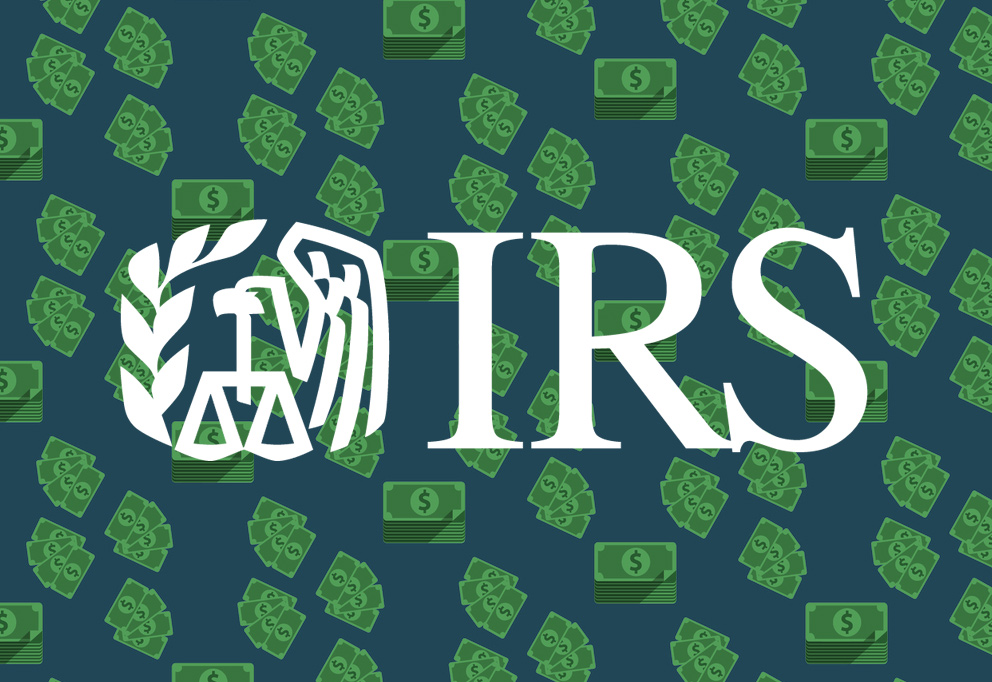How to Know if You Are Audited

Worried well-nigh an audit from the IRS?
You should exist.
Receiving an inspect letter is no one's thought of a pleasant surprise. And if the IRS finds that you underreported your income or claimed too many deductions, you tin bet you'll face up a large fiscal penalty in addition to having to pay back the taxes that y'all shorted the federal authorities.
Fortunately, in that location are ways to decrease your chances of becoming the target of an IRS audit.
Start, be honest when you're completing your income taxes. And when claiming home-office, charitable and other deductions, brand sure you have the documents necessary to prove that the figures you're claiming are authentic.
As long as you lot tell the truth and salvage your receipts? Even if y'all are audited, the procedure won't be overly painful.
Tax professionals say avoiding an IRS inspect all comes down to avoiding the temptation to fudge your numbers in search of a larger income-taxation return or a smaller taxation nib.
"Don't be stupid by omitting income," said Daniel Morris, a certified public auditor and managing manager with San Jose, California-based Morris + D'Angelo. "Study all income, sales, interest, gambling winnings and other income as required. Don't phone call a hobby a business organisation so y'all can deduct the latest fun photographic camera for a business that never has a real sale."
Likelihood of Being Audited
Before you file your income taxes, here is some good news: The odds that you'll be targeted for an IRS inspect are extremely low.
The truth is:
The IRS simply doesn't audit that many taxpayers.
Jeff Siegel, a taxation attorney with Kansas City, Missouri's Siegel Tax Law, says that in the 1960s, well-nigh six percent of U.S. taxpayers had their tax returns audited in a given year. Now, Siegel says, these numbers are much lower.
In 2014, the IRS audited just 1.2 million of the 240 million revenue enhancement returns filed by U.Due south. taxpayers. That is a record low, something which Siegel blames largely on budget cuts mandated by Congress. Each twelvemonth, about one percent of all tax returns are audited,
"The good news for potential auditees is that in the past audits were far more frequent than they are today," Siegel said.
And if you don't make much money? The odds are fifty-fifty lower that you lot'll be subject to an audit, Siegel said.
"The IRS places much more resources into police force enforcement for high-income taxpayers than it does for low-income taxpayers," he said.
But here's an unfortunate reality:
Some taxpayers are audited even if they don't brand much coin and they are completely honest. Sometimes, you're just unlucky and your tax return randomly comes upwards for an audit.
If you are one of the unfortunate few who are subject to an IRS audit, don't panic. Siegel said that you should be honest with your auditor; provide all the documentation that yous have to back upwards your expenses, deductions and income; and notice a tax attorney to represent you.
Why Your Tax Return Was Flagged
If yous desire to increase the odds that you won't receive an inspect, there are several red flags to look out for.
Most of them involve non running afoul of a software system that the IRS calls the Discriminant Inventory Function, or DIF.
This organisation compares your returns with others filed in your income bracket. If your numbers seem odd -- say your deductions are flagged every bit being unusually loftier for your income -- y'all might attract the attention of the IRS.
Hither are 5 reasons that the IRS may audit your return:
1. Hidden income

Michael Raanan, a former IRS agent and president of Landmark Tax Group in Santa Ana, California, said that the absolute best way to attract an audit is to underreport your income.
It might seem tempting to attempt to lower your reported income as much equally possible, merely if you're being dishonest, y'all're practically inviting the IRS to send you an audit letter, Raanan said.
This isn't much of a temptation for filers who rely only on a single full-time job for their income. But if yous receive all or office of your income from freelance or contract work, yous might be tempted to not report that $700 payment you received from a customer in February. And if you lot receive part of your income in the form of rent or tips, you might again be tempted to hibernate that income from the government.
Don't. Raanan said that the IRS has a tracking system that it relies on to determine which returns to inspect.
The system gives revenue enhancement returns 2 scores, one based on whether a return is riddled with enough possible discrepancies to warrant an audit and a 2d based on the odds that your return contains unreported income.
"Some individuals believe that because the risk of an audit is pocket-sized, they can become away with fudging small numbers," Raanan said. "Y'all will always attract the attention of the IRS if you lot neglect to study all of your income, neglect to written report payments to household help or neglect to report large gifts."
If you exercise freelance piece of work recall that companies that pay you lot at to the lowest degree $600 during the twelvemonth volition study these payments to the government. If y'all don't report these aforementioned payments on your taxes, you're putting yourself at risk of an audit.
2. Your math is off

Sometimes y'all're audited not considering you're dishonest but considering you've made a few unproblematic number mistakes on your returns.
"A significant corporeality of people are audited due to mundane math errors," Raanan said. "If the numbers of your forms don't match or add upward correctly, the IRS will likely notice."
Raanan's advice is simple: Before you lot plough in those taxes, double check your numbers. And use exact numbers when calculating your income, deductions, and charitable contributions, he said. Don't round upwardly these figures.
3. You lot claim too many deductions

Running your own concern is a great way to save money on your taxes. If you operate an office dedicated solely to your business from your home, yous can even deduct a portion of your utility payments, for instance.
You can as well deduct equipment purchases, travel expenses, meals, and hotel stays related to your business.
Only don't get carried away.
The IRS takes a close expect at the deductions of concern owners. If you lot deduct every restaurant meal you've eaten during the year, don't be surprised if you receive an unfriendly alphabetic character from the IRS.
Raanan says that concern deductions are tempting, but can oft atomic number 82 to futurity audits if your business rarely earns income. Your job equally a concern owner is to make sure that you lot can justify the deductions you are claiming should the IRS come calling.
"If you're self-employed but don't earn much income, it can also raise red flags with the IRS, peculiarly if y'all claim your domicile office and other business expenses," Raanan said. "It's very important to keep track of all your paperwork and records so you tin can conspicuously defend any deductions and credits."
4. Challenge losses from a hobby

Your business as well needs to brand a profit, at to the lowest degree some of the time, if yous desire to deduct business concern losses on your taxes.
In full general, the IRS expects your business to turn a contour in at to the lowest degree three of the last 5 years. If it does, the IRS will assume that you are in business to make money and are making a solid effort to plow a turn a profit each year.
But if information technology doesn't, the IRS volition consider your business a hobby, and y'all can say "bye" to claiming losses from it on your taxes.
Morris said that besides many filers try to merits their hobbies as businesses.
They might like taking photos, and so they try to claim the digital camera they bought. Maybe they weblog nearly their travels, so they endeavour to claim that their vacation to the Grand Coulee was a business expense.
Only if these filers aren't earning income from their photography or writing, the IRS won't consider it a business organization.
"Don't try to deduct hobby losses from businesses that are fun yet rarely accept sales, or never plenty," Morris said.
5. You lot make too many charitable contributions

Do you lot donate clothing, furniture and cash to charitable organizations throughout the year?
That's laudable.
But your charitable donations can also trigger an IRS audit.
The IRS allows you to deduct a portion of your charitable donations on your federal income taxes. By giving to others, and so, yous tin can reduce your tax nib. But if your charitable donations are far likewise loftier for your income, the IRS might get suspicious that some of those "donations" aren't real.
If y'all want to avoid audit problem, make certain you receive receipts from the organizations to which you donate.
For non-greenbacks donations of up to $250, you'll demand a receipt from the charity. The receipt should listing the engagement and location of your donation, along with the name of the charity and a brief clarification of what you donated.
For non-cash donations of more than than $250, you'll again need a receipt. But this receipt must also state whether you received whatever services or goods from the charity in return for your donation.
For cash donations of less than $250, you can use a receipt showing when you made your contribution and how much it was to prove your donation to the IRS. But if y'all don't accept this receipt, yous can as well prove the IRS a cancelled cheque, depository financial institution argument or credit-card tape proving your donation. For a cash contribution of more $250, though, you absolutely must go a written receipt from the charity.
Source: https://www.mybanktracker.com/blog/taxes/five-signs-audited-irs-253440
Post a Comment for "How to Know if You Are Audited"